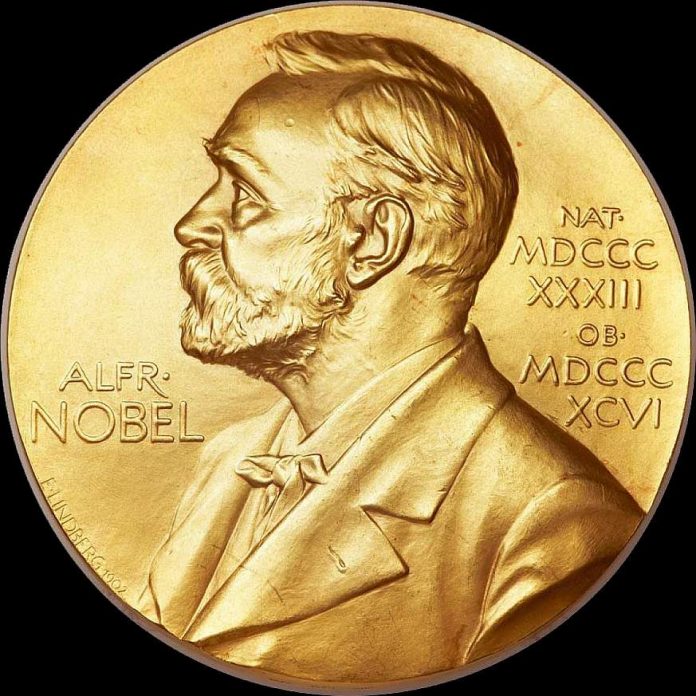The Royal Swedish Academy of Sciences awarded the 2021 Nobel Prize in Chemistry to German chemist Benjamin List and British chemist David W.C. MacMillan for the development of asymmetric organocatalysis.
Nobel Prize in Chemistry was announced by Professor Göran K. Hansson, Secretary-General of the Royal Swedish Academy of Sciences
The 2021 Nobel Prize for Medicine/Physiology and Physics has already been announced.
About the Discovery
Catalysts (substances that increase the rate of a chemical reaction) are fundamental tools for chemists. But till 2000, researchers believed that there were, in principle, just two types of catalysts available: Metals and Enzymes.
Benjamin List and David MacMillan in 2000, independent of each other, developed a third type of catalysis. It is called asymmetric organocatalysis. It is a simple tool for the manufacture of molecules.
Organic molecules are normally found in or produced by living systems. It is made of carbon atoms bonded with other elements. Organocatalysis uses small organic molecules to accelerate chemical reactions.
About the Laureates
Benjamin List was born in 1968 in Frankfurt, Germany. He is the director of the Max-Planck-Institut für Kohlenforschung, Germany.
David MacMillan was born in 1968 in Bellshill, United Kingdom. He is a Professor at Princeton University, the United States of America (USA).
Significance of the Discovery
Benjamin List and David MacMillan remain leaders in the field and have shown that organic catalysts can be used to drive multitudes of chemical reactions. The devices they created have made a huge impact on pharmaceutical research and revolutionized the creation of molecules.
Using these reactions, researchers can now more efficiently construct anything from new pharmaceuticals to molecules that can capture light in solar cells. In this way, organocatalysts are bringing the greatest benefit to humankind.
Also their ready availability, low cost, and low toxicity, which confers a huge direct benefit in the production of pharmaceutical intermediates when compared with (transition) metal catalysts.
Prize
The Nobel Prize carries a gold medal and a cash prize of 10 million Swedish kronor(around Rs 8.5 crore) which will be shared equally between the laureates.
Nobel Prize in Chemistry 2020
Nobel Prize in Chemistry 2020 was awarded to Emmanuelle Charpentier (Germany), Jennifer A. Doudna (USA) for the development of a method for genome editing. Genetic scissors is a tool for rewriting code of life.
Facts on Nobel Prize in Chemistry
- Between 1901 and 2021, the Nobel Prize in Chemistry has been awarded to 188 laureates out of which only 7 were women.
- Marie Curie and Dorothy Crowfoot Hodgkin, are the women laureates who were awarded unshared chemistry prizes.
- Linus Pauling is the only person who has been awarded two unshared Nobel Prizes.
- Fredrick Sanger is the only person in the history of the Nobel Prize, who has won the prize twice in Chemistry.
- The youngest person to receive the Nobel Prize for Chemistry was Frédéric Joliot at the age of 35 in 1935.
- John Goodenough is the oldest person to ever receive a Nobel Prize. Goodenough won the 2019 Nobel Prize for chemistry at the age of 97 years .
About Nobel Prize
The Nobel Prize is a prestigious award that comes with a gold medal and 10 million Swedish Kronor (over $1.14 million). The prize money comes from a bequest left by the creator of the Prize, Swedish inventor Alfred Nobel, who passed away in 1895.
The prizes for the achievements in literature, science, and peace were created and funded in the will of Alfred Nobel. Nobel Prizes have been awarded since 1901, with the economic prize first handed out in 1969.
Nobel Prize in Literature 2021
Over the coming days prizes will also be awarded for outstanding work in the fields of literature, peace and economics. Stay tuned for all the updates.




